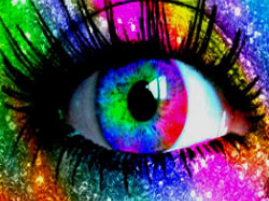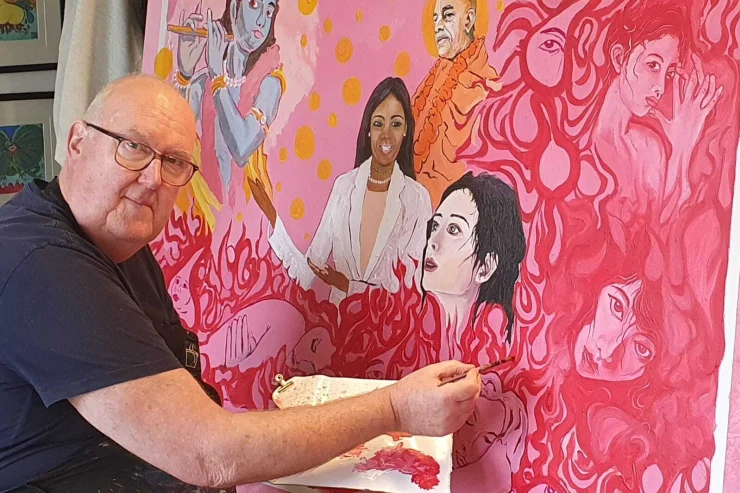The Visual Void
By Mukunda Goswami | Jul 03, 2010

One lazy Saturday afternoon in Portland Oregon, USA my younger brother and I were about to buy tickets at a box office at the Paramount Theatre. I was 14 and he was 11; the year was 1954. An old blind man overheard us. He bought our tickets and one for himself. He sat next to us during the entire picture and I remember having to tell him what was going in almost every scene in the film. He was inquisitive to the point of annoyance. At the end of the show, he went his way. We said good-by to the smiling stranger who thought he’d gotten his money’s worth.
We all tend to be visually oriented, just as infants are often said to be orally fixated. I mean they try to eat almost anything they can get their hands on.
Most of us are addicted to screens and cars and we’re dazzled by supermarkets.
When it comes to the things we’re in awe of, advances in medicine, communications and travel are high on the list.
Moreover, when it comes to almost anything, including education, finances, health and family concerns, “What you see is what you get” and isn’t seeing believing?
We seem to be visually fixated.
A common way teaching memorization (for learning languages and many other things) is to visualize.
Yet, Srila Prabhupada has said that we’re “proud of our eyes.” He’s known for saying that clouds cannot cover the sun; that they cover our eyes.
In 1972 in Pittsburg, Pennsylvania, USA he said in a public lecture, “The ears are stronger than the eyes. So things, which is (sic) beyond our experience, we can hear about. Even though we cannot see, it does not mean there is no existence of things. The same example: even though I cannot see what is mind, what is intelligence, what is ego, but I can hear about it.”
The H.G. Wells short story, “The Country of the Blind” is about a man who gives up a relationship with a beautiful woman in order to retain his eyesight. Philosophically provoking, the story highlights how important seeing is to us.
After all, we know of blind celebrities like Ray Charles and Stevie Wonder. And in the Vedic tradition, the sage Bilvamangal Thakur voluntarily blinded himself, because he felt his eyes were the source of his inclination to sinful activity.
Lecturing on the Bhagavd-gita As It Is in 1975 in Tokyo, Srila Prabhupada told us, “Sound is the original ingredient of creation.” This principle is confirmed in the Srimad Bhagawatam, wherein it is said that when Brahma heard the two syllables “ta” and “pa,” only then was he able to create the universe (Srimad Bhagawatam, Canto 2, Chapter 9, verse 6 — verse and purport).
The point is the ears can be more important than our ever-so-precious eyes. Is hearing better than seeing? Are ears stronger than eyes?















